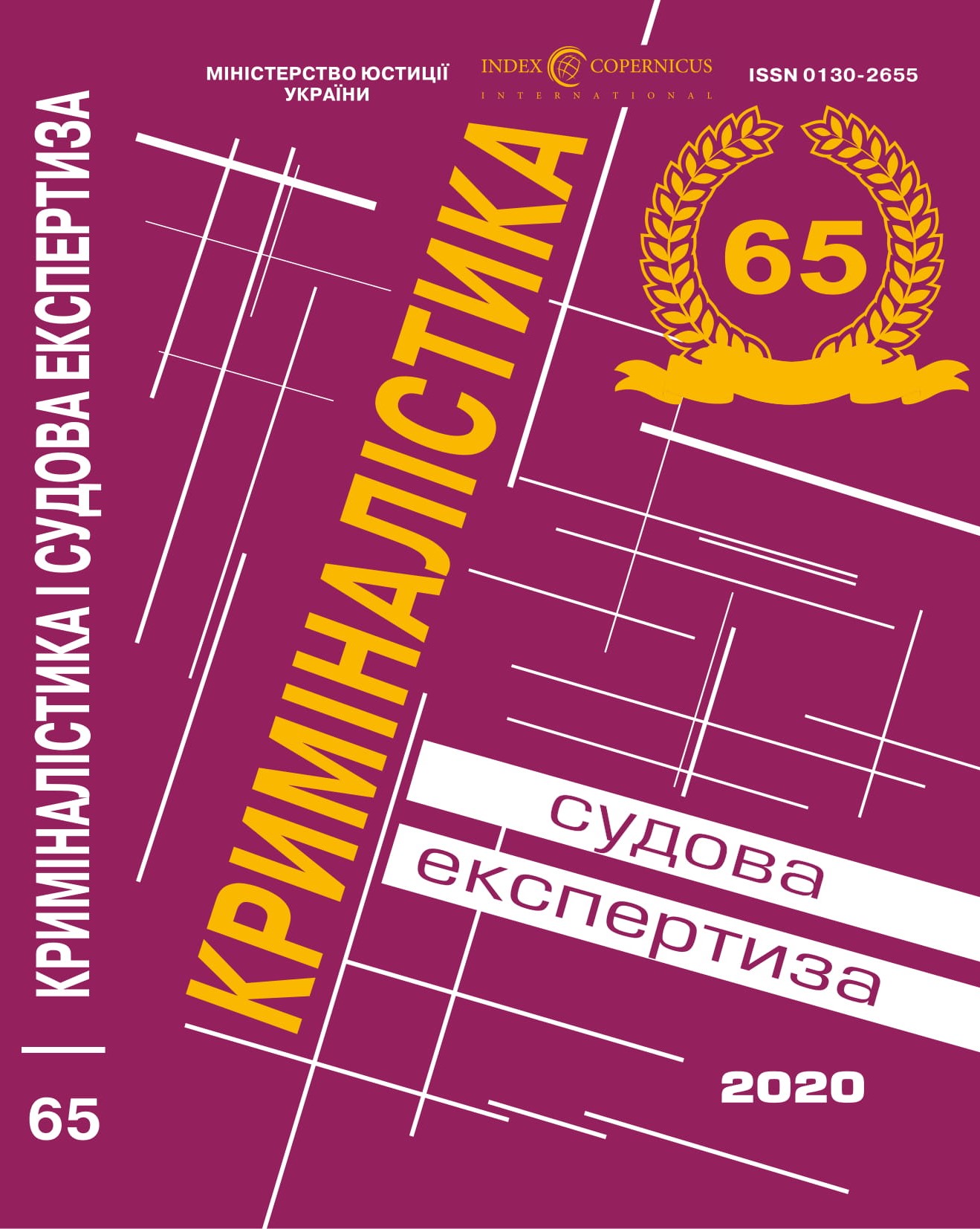
DOI: https://doi.org/10.33994/kndise.2020.65.35
O. Yakovlev, B. Lukianchykov, O. Svirin, O. Mykytenko
After the Revolution of dignity and the reform of the National Police, the number of criminal offenses committed in our country unfortunately remains at a high level. This is confirmed by the statistics provided on the website of the Office of the Prosecutor General of Ukraine. Therefore, the total number of all registered criminal offenses in Ukraine amounted to 565 182 in 2015, 592 604 in 2016, 523 911 in 2017, 483 133 in 2018, 444 130 in 2019.
At present, one of the priority areas of the law enforcement bodies of our state is the investigation of criminal offenses against participants in the Revolution of Dignity, as well as crimes committed in the areas of environmental protection, which is emphasized by the country’s leadership and the directed expectations of ordinary citizens.
During the commission of grave and especially grave criminal offenses, law enforcement officers confiscate a variety of material evidence, among which quite often there are used cartridges, bullets, remnants of explosive devices, burned cars, etc. heating (for example, sleeves after a shot). That is why, more and more often, there is a need for constant updating of modern forensic technology and methods for its use and the introduction of the positive experience of law enforcement agencies of foreign countries in the investigation of crimes and subsequent work with material evidence in the framework of forensic examinations.
The seizure of such material evidence as fingerprints or biological fluids of the offender’s personality are the most significant evidence in court, subject to the positive conclusions of the examinations carried out on these traces, which will allow to identify the person and prove his involvement in the commission of a criminal offense.
The use of forensic technology in the detection and investigation of hidden fingerprints and biological fluids in the investigation of crimes is the subject of the work of such domestic and foreign scientists as V. P. Bakhin, R. S. Belkin, P. D. Bilenchuk, M. S. Bokarius, V. G. Goncharenko, I. V. Mountains, A.V. Ishchenko, E. P. Ishchenko, V. A. Kolesnyk, V. K. Lysychenko, M. M. Lysova, E. D. Lukianchykov, A. V. Oderii, O. A. Parfylo, M. A. Pohoretskyi, M. V. Saltevskyi, T. A. Sedovoi, V. S. Kuzmicheva, M. Ya. Sehai, V. V. Tyshchenko, V. Yu. Shepitko, N. E. Shumylo, M. G. Shcherbakovskyi and other scientists.
Key words: forensic technology, forensic technology, foreign experience, scene inspection, fingerprints, biological traces, expert light, luminescence, light filters.










